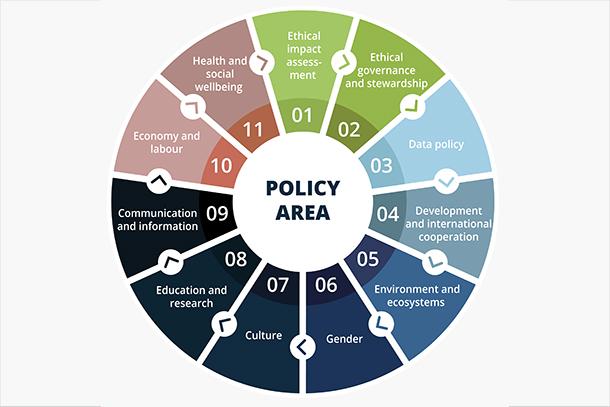
The Legal Ramifications of AI in Marketing
Introduction
The use of Artificial Intelligence (AI) in marketing is growing rapidly, as businesses seek to automate processes, enhance customer experiences, and scale operations. However, as with any new technology, there are legal implications to consider. In this article, we discuss the potential legal issues that may arise and provide tips on how to navigate them.
Scrutinize AI vendors’ Terms and Conditions
When using an AI platform, it is essential to review and understand its Terms and Conditions fully. This means scrutinizing the vendor’s policies on retaining and training on your data and using those terms to inform your internal AI practices. It’s important to be aware that using an AI platform may mean your data is being used as public training data, which is usually not acceptable, especially when involving personally identifiable information. GDPR, CCPA, and other privacy regulations apply to AI, so it’s essential to be aware of the rules governing data privacy and ensure they are being followed.
Confidentiality and Nondisclosure Agreements
Nondisclosure and confidentiality agreements may impact your use of information, such as financial data and other confidential details, especially if tied to private companies. To avoid violating these agreements, it’s best to avoid using real client information and instead use pseudonyms and anonymized data. Always remember to take necessary measures to keep your clients’ information secure and protected.
AI Security Measures
Like any other system or technology, AI is not immune to hacking. Therefore, it’s important to investigate the vendor’s security measures and ask yourself if they are sufficient. You should also consider the worst-case scenario if the AI is hacked and have a plan of action in place. Ensure that you have safeguards to minimize the security risk and protect your data.
Establish an Ethics Statement Regarding AI
A company should have an ethics statement regarding AI, which outlines the practices used and why they’ve made such decisions. This statement should be included in the company manual or a separate document serving the same purpose. The goal is to ensure that everyone works legally and ethically and to keep team members informed about how AI is being used in the organization.
Verify AI-Generated Content is Correct
It’s no secret that AI can produce false and inaccurate results; hence, it’s essential always to verify that AI-generated content is correct. It’s best to require your team always to do the same. Before using any AI-generated content in client material, ensure that all facts have been verified through other channels to avoid potential mishaps. Additionally, an AI policy should insist on verifying all facts before using AI output in any content. This prevents your company from spreading misinformation, which can lead to an embarrassing incident.
Transparency with Clients on AI Usage
It’s essential to be transparent with clients regarding how you’re using AI and its benefits to them. Posting a corresponding ethics statement on your website and sharing it with your clients can help ensure transparency and build customer trust. Clients should agree and acknowledge in writing that they’re providing legally obtained data or content for AI use and that they’re following your instructions. This protects you and your clients’ privacy and prevents misuse of information.
Updating Contracts and Nondisclosure Agreements
Contracts and nondisclosure agreements should be updated to protect against unforeseen legal issues. Clients should agree that they provide only legally obtained data or content for AI use. Additionally, include an indemnity clause to protect yourself in case something goes wrong, and consider adding a no-guarantee clause to clarify that your company cannot guarantee the results of the AI-generated content. Finally, don’t be afraid to bid adieu to a client if you believe they’re using AI to engage in unethical or illegal activities, or if they ask you to do anything unethical on their behalf.
Conclusion
AI holds significant potential for improving business outcomes and customer experiences. However, it’s essential to understand the legal implications to prevent legal action, violations, or potential PR disasters. Implementing ethical AI practices can also build trust with customers and clients, leading to long-term relationships and positive business outcomes.
Originally Post From https://www.marketingprofs.com/articles/2024/51610/ethical-legal-ai-marketing-compliance
Read more about this topic at
Navigating Ethical AI And The Future Of Automation
Navigating the ethical challenges of artificial intelligence

